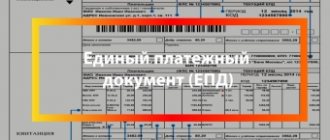Normative base
According to the basic law - the Constitution of the Russian Federation, every Russian citizen receives the right to housing, and compliance with it is obliged to control the state (Article 40).
All major issues related to the procedure for paying for utility services are regulated by the Housing Code of the Russian Federation. Yes, Art. 153 establishes the categories of citizens who are entrusted with the responsibility for making payments:
- Citizens who have registered ownership of an apartment (house or share in housing).
- Responsible tenants if the housing is on social rent.
- Citizens living with the responsible person if he is absent.
The deadlines that must be met when performing the utility payment procedure are set out in Art. 155. In total, 11 articles are devoted to the above-mentioned issues in the RF Housing Code (Section VII).
A number of rules governing the obligations and rights of utility service providers and their recipients are established in PP No. 354 (dated 05/06/2011).
The procedure for collecting debt on utility bills for residential premises from individuals
The obligation to pay for living quarters and utilities is provided for in Art. 153 Housing Code of the Russian Federation.
The norms of paragraph 4 of Art. 154 of the Housing Code of the Russian Federation establishes that fees for utilities include fees for cold water, hot water, electricity, thermal energy, gas, domestic gas in cylinders, solid fuel in the presence of stove heating, fees for wastewater disposal, handling of solids municipal waste.
In addition, the owners of residential buildings bear the costs of their maintenance and repair, and also pay for utilities in accordance with agreements concluded, including in electronic form using the system, with persons carrying out the relevant types of activities (clause 3 of Article 154 Housing Complex of the Russian Federation).
In cases provided for in paragraph 5 of Art. 154 of the Housing Code of the Russian Federation, payment for utility resources consumed during the use and maintenance of common property in an apartment building is also included in the payment for utility services.
The procedure for providing utility services to owners and users of premises in apartment buildings and residential buildings is established by the Rules approved by Decree of the Government of the Russian Federation of May 6, 2011 N 354 (hereinafter referred to as the Rules).
In accordance with clause 4 of the Rules, the consumer can be provided with the following types of utility services: cold and hot water supply, sewerage, electricity supply, gas supply, heating, solid municipal waste management.
The provision of utility services to the consumer is carried out on the basis of a paid agreement containing provisions for the provision of utility services (clause 6 of the Rules).
The provision of utility services is provided by the management organization, partnership or cooperative, or the organization specified in paragraphs. “b” clause 10 of the Rules, through the conclusion of agreements with resource supplying organizations on the acquisition of utility resources for the purpose of using such resources in the provision of utility services to consumers (clause 13 of the Rules).
Payment for residential premises and utilities is paid monthly before the tenth day of the month following the end of the month, unless a different period is established by the management agreement of the apartment building or by a decision of the general meeting of members of the homeowners association, housing cooperative or other specialized consumer cooperative, on the basis of payment documents or information on the amount of payment for residential premises and utilities posted in the system or in other information systems that allow you to pay for residential premises and utilities (Article 155 of the Housing Code of the Russian Federation, clauses 66, 67 of the Rules).
Taking into account the deadline for payment of utility bills, provided for in Art. 155 of the Housing Code of the Russian Federation, debt for provided utility services arises from the 11th day of the month following the payment period.
In accordance with Part 14 of Art. 155 of the Housing Code of the Russian Federation, in case of failure to pay for utility services, a penalty is charged in the amount of 1/300 of the refinancing rate of the Central Bank of the Russian Federation for the entire amount of the debt.
Debt collection procedure
In accordance with paragraphs. “e(3)” clause 32 of the Rules, the contractor has the right to notify the consumer about the presence of arrears in payment of utility services or arrears in the payment of penalties (fines, penalties) by sending an SMS message via a mobile radiotelephone network to the consumer’s user equipment, a telephone call with a recording conversation, email message or through the consumer’s personal account in the state information system of housing and communal services, by posting on the official page of the contractor on the Internet or by transmitting voice information to the consumer over a fixed telephone network.
Meanwhile, for individuals, the pre-trial procedure for collecting debts on utility bills is not directly provided for by current legislation. However, as a rule, when a debt arises, the management company sends the debtor a notice of the need to repay the debt.
If there is no positive reaction from the debtor, the management company has the right to apply to the court with a corresponding application to collect debt on utility bills. The limitation period is 3 years (Article 196 of the Civil Code of the Russian Federation). According to paragraph 41 of the Resolution of the Plenum of the Supreme Court of the Russian Federation dated June 27, 2017 N 22 “On some issues of consideration by courts of disputes regarding payment for utilities and residential premises occupied by citizens in an apartment building under a social tenancy agreement or owned by them by right of ownership” to disputes related to with the payment by citizens of housing and utilities, a general three-year limitation period is applied, calculated from the day when the person learned or should have learned about the violation of his right and who is the proper defendant in the claim for the protection of this right (Art. Art. 196, 200 of the Civil Code of the Russian Federation). The limitation period for claims for collection of debt for payment of housing and utilities is calculated separately for each monthly payment (Part 1 of Article 155 of the RF Housing Code and Clause 2 of Article 200 of the Civil Code of the Russian Federation).
Based on the norms of Art. Art. 121, 122 of the Code of Civil Procedure of the Russian Federation consideration of a claim for collection of debt not exceeding 500 thousand rubles. payment for living quarters and utilities, as well as telephone services, is carried out within the framework of writ proceedings.
According to paragraphs. 1 clause 1 art. 23 of the Code of Civil Procedure of the Russian Federation, cases of issuing a court order are considered by a magistrate.
Disputes related to the payment by citizens of residential premises and utilities are considered by magistrates, as well as other courts of general jurisdiction in civil proceedings (Articles 22 and 23, Chapter 11, 12 and 21.1 of the Code of Civil Procedure of the Russian Federation) (clause 4 of the Resolution Plenum of the Supreme Court of the Russian Federation dated June 27, 2017 N 22 “On some issues of consideration by courts of disputes regarding payment for utilities and residential premises occupied by citizens in an apartment building under a social tenancy agreement or owned by them by right of ownership”).
According to para. 1 clause 5 of the Resolution of the Plenum of the Supreme Court of the Russian Federation dated June 27, 2017 N 22 “On some issues of consideration by the courts of disputes regarding the payment of utilities and residential premises occupied by citizens in an apartment building under a social tenancy agreement or owned by them by right of ownership” requirements for the collection of the amount debts for payment of residential premises and utilities not exceeding five hundred thousand rubles are subject to consideration in the order of writ proceedings (clause 1, part 1, article 23, part 1, article 121, paragraphs 10 and 11, article 122 of the Code of Civil Procedure of the Russian Federation) .
According to Part 2 of Art. 123 of the Code of Civil Procedure of the Russian Federation, an application for a court order is paid with a state duty in the amount established by the federal law on taxes and fees, which is 50% of the amount of the state duty established by paragraphs. 1 clause 1 art. 333.19 of the Tax Code of the Russian Federation (clause 2, clause 1, article 333.19 of the Tax Code of the Russian Federation).
The content of the application for the issuance of a court order and its form are established by Art. 124 Code of Civil Procedure of the Russian Federation.
A court order on the merits of the stated claim is issued within five days from the date of receipt of the application for the court order. A court order is issued without summoning the claimant and debtor and conducting a trial. The court examines the information presented in the claimant's application for a court order and the documents attached to it to substantiate the position of this person and issues a court order on the basis of the documents presented (Article 126 of the Code of Civil Procedure of the Russian Federation).
The judge, within five days from the date of issuance of the court order, sends a copy of the court order to the debtor, who has the right to submit objections to its execution within 10 days (Article 128 of the Code of Civil Procedure of the Russian Federation).
If the debtor does not submit objections to the court within the prescribed period, the judge issues to the collector a second copy of the court order, certified by the official seal of the court, for presentation for execution or sends it to the bailiff for execution (Article 130 of the Code of Civil Procedure of the Russian Federation).
If the debtor raises objections regarding the execution of the court order within the prescribed period, it is subject to cancellation (Article 129 of the Code of Civil Procedure of the Russian Federation).
If the amount of claims exceeds the established limit of 500 thousand rubles, or the court has issued a ruling to cancel the court order, the application of the management company is considered in the court of first instance through litigation in the manner provided for in subsection. Section II II Code of Civil Procedure of the Russian Federation at the defendant’s place of residence.
Attached to the application for an order or statement of claim: a receipt for payment of the state duty, an extract from the defendant’s personal account, bank details of the utility service provider, reports on services provided, documents confirming non-payment, calculation of debt and accrued fines, documents evidencing pre-trial settlement ( if available), other necessary documents.
Based on the results of the consideration of the case, the court makes a decision in accordance with Chapter. 16 Code of Civil Procedure of the Russian Federation.
The court decision comes into force after a month from the date of adoption of the court decision in final form (Articles 209, 321 of the Code of Civil Procedure of the Russian Federation).
Based on a court decision that has entered into legal force, the court issues a writ of execution to the plaintiff to collect the debt from the debtor or, at the request of the plaintiff, sends it to a bailiff for enforcement.
During the trial, as well as after the court decision, the debtor and the management company can agree to enter into a settlement agreement, which will include conditions beneficial to both parties. The settlement agreement is subject to mandatory approval by the court in which the case of collection of debt for utilities is being considered (Article 173 of the Code of Civil Procedure of the Russian Federation).
The procedure for forced collection of debt is provided for by Federal Law dated October 2, 2007 N 229-FZ “On Enforcement Proceedings” (hereinafter referred to as the Law on Enforcement Proceedings).
The following enforcement measures may be applied to individuals (clause 3 of Article 68 of the Law on Enforcement Proceedings):
foreclosure on the debtor's property, including cash and securities;
foreclosure on periodic payments received by the debtor due to labor, civil or social legal relations;
foreclosure on the property rights of the debtor, including the right to receive payments for enforcement proceedings in which he acts as a claimant, the right to receive payments for hire, rent, as well as exclusive rights to the results of intellectual activity and means of individualization, rights of claim under agreements on the alienation or use of the exclusive right to a result of intellectual activity and a means of individualization, the right to use the result of intellectual activity or a means of individualization belonging to the debtor as a licensee;
other measures provided for in Art. 68 of the Law on Enforcement Proceedings.
| print version | Version for MS Word | Consumer rights Protection |
Deadlines for payment of utility bills
To independently determine by what date it is necessary to pay for utilities, turn to the Housing Code of the Russian Federation (Article 155). It establishes that residents must receive payment documents every month. They contain all the information regarding the required amount, and indicate the deadlines for making payments on utility bills. If for some reason the document did not reach the recipient at the right time, you can find out all the required information:
- With a direct visit to the office of the management company. It is permissible to contact the organization providing utility services.
- Through payment terminals.
- In the electronic office.
The Housing Code of the Russian Federation defines the following payment terms for the use of utility services. All consumers are supplied with utility services in advance. They are paid by the 10th day of the following month after the month in which these services were received. A different period for paying housing and communal services, according to the law, may be established on the basis of:
- Agreements between the management company and the residents of an apartment building.
- Decisions of the general meeting of participants of the HOA (or building cooperative, depending on the form of ownership).
It happens that payment for the received utility services was made on time, but for some reason the information about the payment did not reach the supplier at the right time. In this case, according to the rules of the current housing legislation, a penalty may be charged to the responsible person. Funds may be refunded in future payments. Otherwise, to recalculate the payment made, the consumer will have to contact the supplier or management company.
Ministry of Construction of the Russian Federation on payment for consumed utility resources
In the letter, the department explained that calculations for the volume of consumed utility resources are carried out not for a calendar period, that is, not from the first to the last day of the month, but for the billing month: for the period between taking meter readings. The legislation does not provide for fragmentation of meter readings.
Payment for the entire volume of utility resources actually consumed from June 25 to July 25 will be carried out taking into account the new tariff established from July 1st. There is no violation of consumer rights in this situation.
How to take into account legal requirements when paying for heating
323496
Services you need to pay for
There are different categories of housing in the Russian Federation. Depending on them, a list of services supplied that must be paid is established. If we are talking about apartment buildings with comfortable amenities, then the consumer pays money for the following utilities:
- Central heating.
- Gasification.
- Supply of cold and hot water.
- Electric Energy.
- Drainage.
The category of housing services includes the following:
- Removal of solid household waste.
- Maintenance and repair of elevator cabins and shafts.
- Availability of a radio point.
- Maintenance and repair of intercom and/or locking device.
- Community antenna.
- Maintenance and current repairs of common property.
- Work of management company employees.
For the last 5 years, major repairs of the house have been included in the payment document as housing and communal services. It is also necessary to pay the established funds in a timely manner.
Utility bills are calculated according to meter data (which is submitted monthly by the responsible person to the management company) or basic tariffs for each person living in an apartment or house.
Where can I pay for housing and communal services?
With the widespread spread of Internetization, the number of payment methods has increased significantly. Now the responsible person can choose how he will deposit the money:
- Pay in cash.
- Use a credit or debit bank card.
- Make a transfer from an electronic wallet.
Let's consider in what ways and when you need to pay for housing and communal services:
- Depositing funds through a bank cash desk. This is the classic way. It has a couple of disadvantages: there are long queues at the bank, and utility payments are accepted only on weekdays. To carry out the procedure, you must present the receipt and funds to the cashier.
- Using a payment terminal. They are located in financial institutions, shopping centers and other organizations. To carry out the operation, you need cash or a plastic card, depending on the type of terminal.
- Using interactive applications installed on a phone, iPhone, tablet, laptop, etc. For example, Sberbank Online or MTS “Easy Payment”.
- Through the post office. If payment is made in cash, a fee will apply. If using a bank card, then they will not charge interest from Sberbank clients.
- On the State Services portal - relevant for those who have opened a personal account. Payment can be made by electronic money or by bank card, which means there is no commission fee.
In most settlements there are also organizations that provide services for accepting all kinds of payments (not only for housing and communal services). Operating rules vary, but usually payment is made to a personal account in cash. Less often - with a bank card.
How to pay housing and communal services online through Frisbee?
To do this, just go to the website in the housing and communal services section and select exactly the type of payment that you are going to make. Having entered the appropriate subsection, you need to select the company to which the payment will be made, enter your personal account number in the appropriate field.
After this, you go directly to the payment page. All that remains is to fill in the required fields and make payment. To do this, you can use a plastic card issued by any Russian bank. It should be noted that on the Frisbee website, payments for housing and communal services are made via the Internet without commission (with rare exceptions), and the procedure itself only takes a couple of minutes.
Registered users spend even less time on it. Registration for Frisbee is also quick and easy, and after authorization, payments can be added to the “My Payments” list. All data that is entered once into the fields of their forms by the user is saved. Thus, to make subsequent payments, it is enough to indicate only the amounts. This further simplifies and speeds up payments for housing and communal services, and also reduces to almost zero the likelihood of sending money using incorrect bank details.
Install the application and save time on payment with us!
Install
Delay and penalty
According to the Civil Code of the Russian Federation, failure to fulfill the terms of the contract, such as late payment, leads to the accrual of a penalty. Apartment owners do not pay fines, but they do pay penalties. They are calculated according to the following schemes:
- If the delay in required payments is less than 90 days, then the amount of the penalty is 1/300 of the Central Bank rate (the amount is taken for the period of delay) for each overdue day.
- When the period of delay exceeds 90 days, the calculation of penalties begins based on 1/130 of the Central Bank rate.
According to civil law, the amount of the penalty does not exceed the amount of the existing debt. The maximum defined for it is 50%. For example, with an existing debt of 10 thousand rubles. more than 5 thousand rubles. no penalty can be charged.
Those who cannot independently determine the amount of the penalty for utility bills should resort to the help of an online calculator.
It is advisable not to accumulate debts, otherwise this is fraught with prosecution at the initiative of utility services.
The Civil Code of the Russian Federation establishes that the accrual of penalties begins from the first day of delay, unless otherwise specified by the terms of the contract with the management company or supplier.
For example, in a number of regions there is a common rule according to which the accrual of penalties is possible only after receiving the relevant notification, and not by default
Retention period for utility bills
At the moment, there is not a single regulatory act that would indicate the period during which it is necessary to retain documents on payments made. Therefore, based on judicial practice, they rely on the statute of limitations in civil cases. And he, according to Art. 196 of the Civil Code of the Russian Federation, is determined for a period of 3 years. If there are special circumstances, the period is extended.
During this entire time, the interested party has the right to demand a recalculation of the payments made. You should not be lax about the issue of storage. If the management company makes a claim for non-payment, it will be difficult to prove the payment made without receipts; you may have to pay the amount again.










